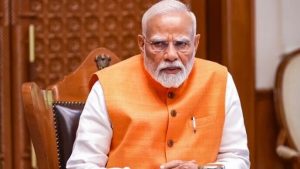The 9-to-5 grind is fading as digital nomads redefine work and lifestyle. Unbound by location and driven by freedom, they’re thriving from Bali to Barcelona. Fast Wi-Fi, strong coffee, and rooftop co-living fuel a borderless life where flexibility matters more than routine, signalling a new economy centred on autonomy, experience, and living without limits.
A Cultural Shift in Work and Life
Remote work was once a perk. Now, for many, it’s the default. The new age has normalised Zoom meetings from kitchen tables and Slack messages sent from mountain lodges. This shift didn’t just disrupt corporate culture, it catalysed a movement.
Digital nomadism represents a broader cultural trend: a desire for autonomy over location, schedule, and even income streams. In this freedom economy, people are designing lives that prioritise experiences over possessions, time over money, and meaning over metrics.
The Rise of Tools for the Unbound
With this shift has come a wave of new platforms and tools. Co-working apps like Croissant and Deskpass let nomads tap into flexible spaces across the globe. Services like Nomad List offer data on the cost of living, weather, and community vibes in hundreds of cities. Meanwhile, cloud-based everything, from banking to productivity suites, ensures that mobility never compromises efficiency.
Alongside mainstream platforms, digital nomads are increasingly also turning to fringe ecosystems that offer even more control, especially when it comes to how they entertain, spend, and manage their time online. For instance, when it comes to iGaming, some international players would prefer to explore a casino not on GamStop, as part of a larger trend of individuals seeking services that mirror a lifestyle that is mobile, accessible, and minimally restricted.
For digital nomads, especially those moving between countries, these platforms offer more flexible options without the geo-restrictions or signup barriers often associated with UK-licensed providers.
Leisure in Motion
Contrary to the cliché, being a digital nomad doesn’t mean working all day with a cocktail in hand. Burnout is real, and balancing exploration with productivity requires structure. Many nomads carve out specific routines: coworking before lunch, a language class in the afternoon, and downtime with digital platforms, whether streaming shows, gaming, or engaging with online hobbies. Leisure becomes a conscious part of the work-life blend.
Just as a remote professional might choose a city with great hiking trails to unwind, they may also prefer entertainment platforms that offer them more control and freedom, free from geographic or regulatory constraints.
The Economics of Choice
Living as a digital nomad isn’t just about chasing sunsets, it’s a strategic economic move. Many earn through freelance gigs, remote contracts, or by building startups and passive income streams. Navigating multiple currencies, payment systems, and time zones, they rely on tools like cryptocurrencies, borderless banking (such as Wise or Revolut), and flexible payment platforms to stay agile.
This demand for financial flexibility shapes how nomads unwind as well, as they seek services and platforms that mirror their need for autonomy. Whether for work or leisure, these tools help maintain balance and consistency in a constantly shifting lifestyle.
Building Community Across Borders
While freedom is central to the digital nomad lifestyle, so is connection. Constant travel can be isolating, which is why many nomads actively seek out communities designed for remote professionals, through meetups, coworking hubs, or language exchanges.
These interactions go beyond networking; they foster a sense of belonging in ever-changing environments. Cities like Lisbon, Medellín, and Tbilisi have become magnets for nomads not just because of affordability or infrastructure, but because of the vibrant, welcoming cultures they offer. In a life without fixed roots, shared experiences and local friendships become the foundation for stability and growth.
What Lies Ahead?
As governments start to recognise the economic contribution of digital nomads, visa programmes are emerging to accommodate them. Countries like Estonia, Portugal, and Barbados now offer specific visas aimed at remote workers, legitimising a lifestyle that, until recently, was seen as a temporary workaround.
What hasn’t yet caught up is regulation around global digital services. Most national frameworks still assume that users are static; that someone logging in from Manchester today will still be there tomorrow. But for the growing number of people who live across time zones and borders, that assumption no longer holds. This makes fringe services a growing part of how digital nomads navigate life, finance, and entertainment.
Conclusion
The freedom economy is more than a trend, it’s a shift in values. As more people seek autonomy over their time, place, and resources, tools that enable this lifestyle will continue to thrive. What digital nomads are quietly proving is that life doesn’t need to follow a conventional structure to be successful or fulfilling. It just needs to be mobile, intentional, and unrestricted.








